
Enhancing Skill Assimilation in Higher Education: Formative Evaluation of a Pilot Program
The Edmond de Rothschild Center for Connecting Higher Education and Employment is spearheading a pilot initiative aimed at developing and promoting an institutional framework for the integration of occupational qualifications and skills within disciplinary study courses. In collaboration with two higher education institutions, this pilot will involve updating four selected courses to incorporate pedagogies that support the acquisition of skills and qualifications.
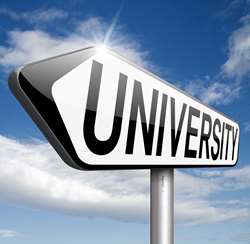
“The Shortened Track for Acceptance to Technion: A Formative Assessment"
This study investigates the evaluation of the "shortened track" admission route at Technion, a unique alternative pathway for accepting students. The research aims to assess the effectiveness of this admission route in increasing diversity among students and explore strategies to attract underrepresented populations. A mixed-methods approach was employed, combining quantitative and qualitative methods. Semi-structured interviews were conducted in two stages to gather comprehensive insights and perspectives. The findings contribute to the ongoing improvement of the shortened track program and provide valuable recommendations for enhancing inclusivity and equity at Technion.

The Forum for Engineering Education at the 21st Century
The Forum is a platform incorporating representatives of universities, colleges of engineering, government ministries and agencies, industry and youngsters, working together to advance insights and paradigms for engineering education, reflecting the needs of the 21st century.

Mapping Human Talent Requirements for Jerusalem's Advanced Industry
The Samuel Neaman Institute for National Policy Research, together with The Jerusalem Development Authority, Jerusalem Municipality, The Social-Economic Forum and The Employers Administration initiated a project for encouraging discharged soldiers to study and work in Jerusalem. The main aim of this project is to identify trends in human talent requirements within the Jerusalem labor market.

Review of funding sources for universities in the world
Institutions of higher education face many financial difficulties affected by changes in revenues and operating expenses. Universities are exploring different approaches to dealing with such economic difficulties. There is no single model that may apply to all academic institutions. The solutions can be classified into several tracks: increasing revenues, streamlining operations, creating collaborations and merging academic institutions, as well as "reinventing" the institution.

The aspects of establishing an academic center in the city of Petah Tikva
Examining different possible models for a new academic center in the city of Petah Tikva, including the school for outstanding and gifted students, or any alternative to such a center. Using several methodologies such as interviews and literature review, three possible models were devised and presented to the management of the Petah Tikva Municipality to select the best model suitable for the urban ecosystem: Lifelong Learning center, novel applied academic center, and a combination of a Lifelong Learning Center and an existing academic center.

Evaluation of the Israel Precision Medicine Partnership (IPMP) Program
The Israel Precision Medicine Partnership (IPMP) is a joint initiative of Yad Hanadiv, the Klarman Family Foundation the Planning and Budgeting Committee of the Council for Higher Education, Digital Israel, and the Israel Science Foundation. The program's aim is to advance basic research as well as new diagnostic and therapeutic methods by Israeli academic and clinical researchers. The purpose of Samuel Neaman’s Institute evaluation research project is to identify challenges in the field, understand the nature of collaborations between academics and medical institutions, and monitor the scientific and technological achievements arising from the program.
_20200506114633.245.jpg?w=250&quality=60)
Absorption of Senior Israeli and Foreign Researchers in Israeli Universities
This research, carried out at the request of the Israel Academy of Sciences and Humanities, relates to Israeli and foreign researchers who were senior faculty members in universities abroad and chose to accept position of Associate or Full Professor in Israeli universities. The study provides a recent mapping of these researchers in Israel including their research focus, the motivation for their arrival, their integration in Israeli universities and strategies for encouraging this process.
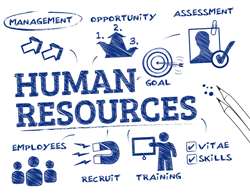
Technology forecasts for scientific and technological personnel needs
This study was conducted as part of a four-year tender for the National Council for Research and Development in the Ministry of Science and Technology. The objective of this study is to forecasts the needs of scientific and technological personnel for selected fields/professions for the short term (10 years).
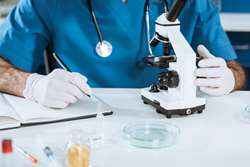
Graduates of Israeli Universities MD PhD Training Program
MD-PhD program graduates are an important pillar in Biomedical research in general, and particularly in the conduction of translational medical research. Developed countries invest significant efforts in this unique human-talent resource which in turn can contribute greatly to the local ecosystem advancing the healthcare, industrial and academic sectors.

University-Industry Relations
Review and critical evaluation of university-industry relations based on data and quantitative indicators. Development of insights regarding optimal policy and models to balance between technology commercialization and technology transfer, which is largely based on cooperation with industry to support industrial research. Recommendations for policy steps based on the insights resolved, addressing the point of view of the well-being of society and national economy.
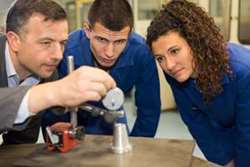
Education of engineers in the 21st century
The Neaman Institute has initiated a national process to re-evaluate the education of engineers in the academic institutes in Israel with the objective to train a young generation of engineers with the abilities to promote innovation in the hi-tech and traditional industries as well as harness the frontier of science for these purposes.
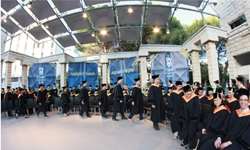
Evaluation of the Technion Excellence Programs
The Technion Program for Excellence was launched in 1992 and is intended for undergraduate students in the Faculties of Science and Engineering who have been identified as having exceptional abilities.
_20190307161353.924.jpg?w=250&quality=60)
Excellence in Mathematics in the Ultra-Orthodox Community
This is an exploratory study, solicited by the Trump Foundation in Israel, aimed at the assessment of the potential for excellence in Math and Physics studies within the current Haredi Educational System. The study illuminates some of the recent transformations occurring in this regard, both within the Yeshivot of the Haredi men, as well among the Haredi women's education system, predominantly the Beit-Ya'akov schools. The report concludes by forecasting, cautiously, an imminent trend change towards a legitimate growing of excellence in mathematics among various sections in the Haredi society.
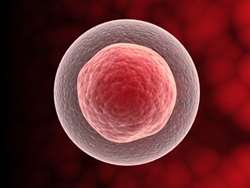
Facilitating Collaboration in Stem Cell Research through Intellectual Property
The goal of the research is to create an infrastructure for designing a policy concerning research, development, and knowledge transfer in the field of stem cells. This policy was intended to encourage scientific innovativeness as well as help lever Israel's position as a leader in this field in the global arena.
_20190307161135.908.jpg?w=250&quality=60)
Scholarly Output in Israel: International Comparison of Scientific Publications
Bibliometrics is a type of research method that uses quantitative analysis and statistics to describe patterns of publications within a given field of literature. Alongside the peer evaluation method, bibliometrics is being used to evaluate the textual output of research (academic papers, patents), by measuring its productivity, quality and priority.

Evaluating the "Rothschild Fellowship" Program
The main goal of the research was to evaluate the impact of the program on the candidates' careers and to assess their chances of pursuing academic careers in leading universities and research institutions in Israel. The research population included 359 candidates who applied to the program between 1996 and 2005. Three groups are included in the analysis: candidates who received the fellowship (Rothschild fellows), candidates who their application was turned down by the evaluation committee and candidates who chose to decline the fellowship.

Evaluating the NOFAR Program
The NOFAR program was conceived as part of the implementation of the recommendations made by the "Monitor Report," and stresses the need to establish a fund to support the development of inventions in the fields of biotechnology and nanotechnology that have a commercial potential in universities, so as to increase the chances of successful transfer of the technology from the academy to industry. The program helps build a bridge between the basic research and the applied research at the stage at which industry has not yet recognized the idea as having a commercial potential.

Proceedings of The International Conference On Privatization In Higher Education
The S. Neaman Institute is leading a movement for critical examination of the university of the future and higher education in Israel. In this context, in December 2004, the Institute sponsored an international scientific conference entitled "The Transition to a Mass Higher Education System - International Comparisons", in cooperation with the United States-Israel Educational Fund, which manages the Fulbright Program for student and faculty exchanges, and the ISEF Fund.
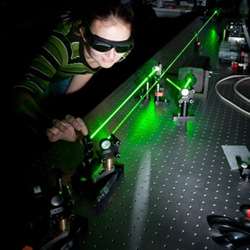
Mapping National Research Infrastructures
The purpose of the research is the mapping of the existing national research infrastructures and the definition of the needs of Israeli researchers with respect to the upgrade and establishment of new research infrastructures.

Proceedings of the International Conference on Privatization in Higher Education
The purpose of the Conference was to learn from the experiences of other countries in the world (United States, Australia, Italy, the U.K., Germany and Sweden.) how to create a national policy that enables broad access to higher education, without endangering the level of excellence in research which has already been attained.

Effects Of Privatization On The Quality Of Higher Education
The purpose of this study is to analyze the relationship between privatization in higher education and the quality of universities. An interesting fact is that of the top 10 universities in the US, nine are private. Previous studies have claimed that there is a relationship between the privatization of universities and their quality, since countries with a high proportion of private resources have superior universities.

Evaluation of the MAGNETON Program
The evaluation of the Magneton program is a research initiated and funded by both the Samuel Neaman Institute and the MAGNET management. The research was performed during 2008-2009. The main research goal was to examine the outputs of the Magneton projects and their success while focusing on the characteristics of the projects, academic researchers and industry head of projects and to evaluate the factors impacting the projects' successes and failures in the past few years.

Funding Basic Science In The Universities
The study relates to various institutions and methods, which include: The Israel Science Foundation, the First program; the budgeting model at the Planning and Grants Committee, and various other sources.

Higher Education Tuition Fee Policy in Israel
Higher education policy in Israel did not consider tuition fees as a major factor when developing strategic planning for higher education institutions in Israel. This study analyses the main factors influencing tuition fees in Israel and suggests a new model for tuition fees that includes compensation schemes for students.

The Economics Of Higher Education (EHE)
Over the past year, a broad research activity took place on the topic of "The Economics of Higher Education: Towards the redesign of the 'Israeli Model'" (in short, EHE), in collaboration with Forum Sapir. The higher education system in Israel is undergoing a profound crisis, which calls for a swift revision of the basic premises upon which it has functioned over the past half century.
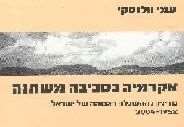
Academia in a Changing Environment
The book "Academia in a Changing Environment - Israel's Higher Education Policy, 1952-2004", (in Hebrew) was published in 2005 with the support of the S. Neaman Institute. This is the first book of its kind in Israel that presents the history of the higher education system, and it has been critically well-received.

Science and Technology in Israeli Public Opinion
In early 2006, Prof. Ephraim Yaar of Tel Aviv University submitted the findings of a survey he conducted on "Science and Technology in Israeli Public Opinion", commissioned by the S. Neaman Institute. The survey examined different ways that the Israeli public relates to the place of science and technology in Israeli society.

An Innovative, Pluralistic, Multi-Valued Approach To Learning
In this project we developed, examined and evaluated processes of mathematical learning in the applied realistic context with regard to different learning styles. The progress in the first year of the project was in two directions, as described inside.

Universities of The Future, Research and Science in Israel
The S. Neaman Institute is leading a movement for critical examination of the university of the future and higher education in Israel. In this context, in December 2004, the Institute sponsored an international scientific conference entitled "The Transition to a Mass Higher Education System - International Comparisons", in cooperation with the United States-Israel Educational Fund, which manages the Fulbright Program for student and faculty exchanges, and the ISEF Fund.

Science, technology, economics (STE)
STE is a core program of the S. Neaman Institute, aimed at developing national policy alternatives for key issues lying at the interface between Science, Technology and the Economy.
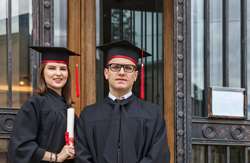
Evaluating the Technion Excellence Program
In recent years, there has been a growing demand that scientists make science accessible to the general public, to allow both the existence and advancement of a society that supports and promotes knowledge, and for receiving support and legitimacy from the public to conduct scientific research.
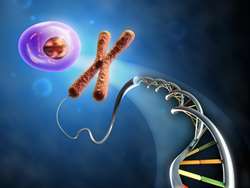
Bibliometric Mapping and Evaluation of Leading Research Groups in Life Sciences
This work deals with the mapping of the leading researchers in the seven academic institutions in Israel (Hebrew University of Jerusalem, Tel Aviv University, Bar Ilan University, Haifa University, Ben-Gurion University of the Negev, the Weizmann Institute and the Technion - Israel Institute of Technology) in the following areas of life sciences: genomics, proteomics, bioinformatics, chemical genomics, and personalized medicine.

The Development of Research Universities in Israel
Research universities in Israel have developed following the developments in the world. Beyond that, they play a major role in Israel's economic, social, and cultural development. The work describes the major events and processes that took place over decades, during which several unique characteristics evolved, the distinguished academic status of the research universities was established, and the national significant contribution of the universities was formed.
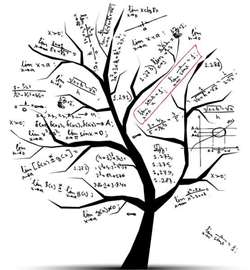
Non-Stop Mathematics
Mathematics curricula in most countries, including Israel, do not reflect the ongoing work and the new results being accumulated in mathematics. Many graduates of the education system develop a misconception that mathematics is a closed and stagnant area, where all the answers are known and very little, if anything, is left to stimulate their curiosity and desire to invest in creating new results. In an attempt to deal with the problem, the project team developed a set of Mathematics News Snapshots (abb. MNSs) in the format of short PowerPoint presentations each focusing on a single breakthrough in the field of mathematics, taking into account the limited background of high school level students.

R&D Outputs in Israel: Quality Characteristics of Distinct Inventions
The report is the third in a series of studies conducted by the Samuel Neaman Institute on Israeli patents. The first part of the study provides updated data on the scope and characteristics of inventive activity by Israeli applicants and inventors in various patent offices (ILPO, EPO, and the USPTO) and in the PCT track. The report presents trends in patent applications and granted patents according to sectoral attributions, examines Israel's international cooperation in the field of inventive activity, and analyzes trends in cross-border patent ownership. The characteristics of foreign applicants at the Israeli Patent Office (ILPO) are also analyzed.

The Higher Education System in Israel: Issues, Characteristics and Unique Aspects
The goal of this project is to examine various aspects that concern excellence evaluations of universities in Israel. Approaches and issues concerning excellence evaluation are universal subjects that are dealt with by many countries. Correct evaluations contribute to the promotion of excellence, while inadequate evaluations may evoke negative processes and even significant damage.
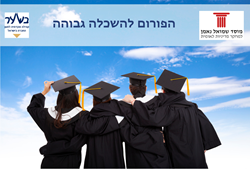
Higher Education Forum
The Samuel Neaman Institute, in collaboration with "Bashaar - Academic Community for Israeli Society", organizes the higher education forum. The higher education forum was established following an international conference held in December 2004 at the Neaman Institute on the subject of "Transition to Mass Higher Education Systems." The goal of the forum is to hold discussions on issues that concern the higher education system in Israel and to hold an open dialogue between the universities, colleges, Israel Council for Higher Education, Planning and Budgeting Committee and other governmental and public organizations.

Indices for Science, Technology and Innovation in Israel and international comparison
At the beginning of the 21st century, the Samuel Neaman Institute identified the need to establish an infrastructure for advancing a systematic and ongoing process of forming national policy on Science, Technology, and Innovation (STI). The objective of this program is to improve the understanding of the STI system of Israel and to answer the question of how processes associated with the development of science, technology, and innovation contribute to increased knowledge, increased productivity, improved economic performance, professional employment, sustainable development, and social welfare. Understanding of the process is based on the collection, analysis, and correct presentation of the various relevant indices and on the analysis of trends as they change over time and in comparison with other countries.
_20190307173216.261.jpg?w=250&quality=60)
Mapping Agriculture R&D in Israel
The Science and Innovation Department of the British Council (through the British Embassy in Israel) has partnered with the Samuel Neaman Institute (SNI) in a joint project, the objective of which is to identify the relevant subjects in the area of Agricultural Science that have high synergy and high potential for cooperation between the United Kingdom and Israeli scientists.
_20190307172519.120.jpg?w=250&quality=60)
Israel-Us Academic Relations
Israel on Campus Coalition (ICC) is a national network of students, faculty members, and professionals in the US, whose goal is to strengthen the pro-Israel movement on campuses across the US. The research department of the ICC addressed SNI and requested a review of the development of academic relations between Israel and the United States over the past decade.

Immigration and Career Choice of Scientific Staff Members
The study, which is conducted as part of an evaluation that explores a possibility to establish a Technion branch at the Negev, examines the return of faculty members to Israel and their absorption into scientific research institutions. The purpose of the study is to understand the researches' location choices, preferring specific research institutions over other alternatives abroad, or vice versa.

Where is Chemistry Education Heading?
More than a decade ago, working groups at the Neaman Institute explored the future of the chemical industry in Israel. One of the four working groups focused on the question of education in chemistry. Under the leadership of Prof. Judy Dori, this group investigated the state of chemistry teaching in Israel and the future of chemistry education in Israel by interviewing and administering questionnaires to chemists, chemical engineers, academics, and teachers.
_20190307170536.820.jpg?w=250&quality=60)
Promoting R&D and Innovation in the Israeli Periphery
The study, commissioned by the Israel National Council for Research and Development (MOLMOP) at the Ministry of Science, Technology and Space, was aimed at providing decision makers with an updated account of the innovation and R&D activities in Israel’s peripheral areas.
_20190307165359.710.png?w=250&quality=60)
Learning Infrastructures in the Field of Nanotechnology – EduNano TEMPUS
The EduNano project is part of TEMPUS, an EU program that supports the modernization of higher education in Eastern Europe, Central Asia, Western Balkans, North Africa, and the Middle East. SNI participates in the project together with the nano centers of the Israeli universities and Elbit Systems. In addition, the Technical University of Sofia in Bulgaria, the Polytechnic Institute of Turin in Italy, and the Grenoble Institute of Technology in France participate in the project.

The Role of Israeli Research Universities in the National R&D
This study was commissioned by the National Council for R&D (NCRD). Its purpose was to examine the influence of Israeli research universities on the national R&D system and the reciprocal relationships between the two systems in creating new knowledge and advanced technologies.
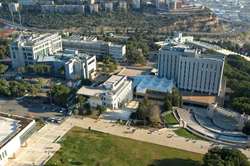
Unique aspects in the Technion development
This study provides a wide view on the progression of the Technion, since its establishment until nowadays. Over the years the institute faced heavy national challenges in the domains of defense, economy and society. At the same time, efforts to raise academic standards and excellence have been continuous extended. All these activities affected the progression and the uniqueness of the institutional culture. As a result, academic excellence has been achieved, together with major contributions to the defense, economy and society in Israel.